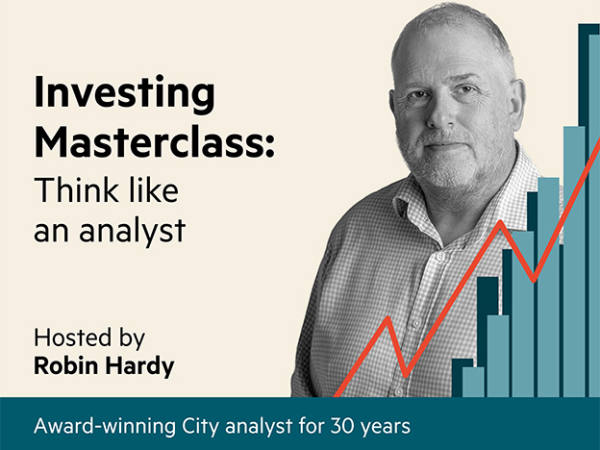Portland, Oregon-based neurologist William Bernstein always had an interest in investing, but it obviously niggled that he hadn't mastered the brief. So 17 years ago he decided to devote half his time to that task. Since then, he's written several personal finance books and sweeping history tomes, including The Birth of Plenty: How the Prosperity of the Modern World was Created. His books use facts and science to destroy investment myths and expose industry cons.
Mr Bernstein's ideas were first outlined in The Intelligent Asset Allocator – he then wrote a more reader-friendly version, The Four Pillars of Investing.
The Four Pillars discusses the key areas to master for investment success: the theory of investing, market history, investment psychology, and the business of investing.
The beauty of the book, and its major strength, is that Mr Bernstein is an independent writer. He pulls no punches: brokers, fund managers and finance journalists all come in for a hammering. The message is clear: you have to learn to look after your own interests, because everyone else is looking after theirs. If you don't know the four pillars, then you'll be exposed to a myriad of errors such as thinking it's easy to beat the market, putting your faith in expensive brokers and mutual funds, and making psychological mistakes.
Mr Bernstein believes it's impossible to beat the market in the long run so recommends keeping costs low with index funds. There is also some distinctly uncomfortable reading on what's needed for a decent retirement.
His writing, which is highlighted at www.efficientfrontier.com, has won him praise from Vanguard legend Jack Bogle, and burgeoning financial success - he now manages $90m (£46m) using his philosophy.
Investors Chronicle spoke with Mr Bernstein about his investment philosophy, how to implement it and his outlook for equities.
IC: One of your key messages is that investing is a science with an established body of knowledge. Why is investing largely taught as a craft and how can private investors become more scientific?
Bernstein: It's not easy. You have to become conversant with statistics, which is a very difficult, non-intuitive field. The best way to overcome this problem is to focus on books that develop a simple way of managing portfolios. The two books I recommend to everyone are Jack Bogle's Common Sense on Mutual Funds and Burt Malkiel's A Random Walk Down Wall Street.
IC: When you wrote and published Four Pillars, markets were coming off the enormous heights of the dot-com bubble. A bear market followed and stocks have since rallied. What is your current outlook for equities?
Bernstein: I haven't the foggiest idea what the next several years will bring. I do know that over the next 20-30 years, you can estimate the long-term return of equities with the Gordon Equation: the sum of the dividend yield and the dividend growth rate, which adds up to around a 3 per cent real return (return after adjusting for inflation) for US stocks and around 3.5 to 4 per cent for foreign and UK stocks.
IC: Those returns are less than the historical average - doesn't that have enormous implications for portfolio allocations and retirement?
Bernstein: Oh yes, and it's even worse than that. In the long term, simply keeping up with inflation is not good enough. Since per capita gross domestic product is growing at 2 per cent a year in real terms, so are living standards; since we judge our material status relative to our neighbours, and not on an absolute standard, to just keep up hedonically we actually need a 2 per cent real return, which is what you're likely to get after expenses.
IC: Where else can we get decent returns?
Bernstein: As Paul Samuelson said, since we can't predict the future, we diversify. Only a fool doesn't own some bonds, some domestic stocks, and some foreign stocks.
IC: Given your outlook for equities, what split between bonds and equities would you currently recommend?
Bernstein: 50:50 is about where everyone should begin. If you're older, less risk tolerant, or are investing in a tax-sheltered account, that pushes you to a lower equity allocation; and if you're younger, more risk tolerant, or investing in a taxable account, then you should have a higher equity allocation.
IC: When allocating assets to bonds, should investors stick with long-duration government bonds and avoid risky corporate debt?
Bernstein: That depends on how much you're being rewarded for taking the credit risk of corporate debt. For the past few years, you weren't paid much, but that's been changing, with a vengeance. I don't recommend long bonds unless they're inflation-adjusted. In general, I like to keep my durations at less than five years. The risk of unexpected inflation is just too high to justify the slightly higher coupons of long bonds.
IC: One worrying message is that some people will be unlucky and retire during a big market slump that depletes their assets. Is there any way to protect against this happening?
Bernstein: An inexpensive immediate, fixed annuity helps a lot, as does a healthy allocation to bonds.
IC: Your investment philosophy is based on efficient markets - basically, it's impossible to beat the market. What makes markets efficient? Is there any hope for stock-pickers?
Bernstein: It's very simple: given its enormous rewards, finance arguably attracts the smartest people in today's society. Whenever you buy a stock, someone is selling it to you, and that someone likely has a name like Warren Buffett or Goldman Sachs. It's like playing tennis with an invisible opponent - what you don't realise is that the folks on the other side of the net are probably the Williams sisters. So if you think you're smarter than Buffett or Goldman's traders, then be my guest. That's just not a game I want to play.
IC: How do you reconcile efficiency with historical market periods you describe in Four Pillars as "barking mad"? Do markets sometimes get things badly wrong and can investors exploit this?
Bernstein: What we were talking about in the previous question is what economist Paul Samuelson calls "microefficiency" - the ability to pick individual securities. But, from time to time, the entire market can become what Samuelson would call "macro-inefficient," meaning almost all equities can become very cheap, as in the mid 1970s, or very expensive, as in the late 1990s.
IC: A common rebuttal of market efficiency is the amazing success of Warren Buffett and Peter Lynch. Would you be prepared to look Buffett in the eye and tell him he's just lucky?
Bernstein: No, Buffett's skilled. Lynch I'm not so sure about - his record the last five years at Magellan, when he had to manage "real money," was less than stellar. The problem is picking out the Buffetts ahead of time; now that the secret's out, you have to pay a whopping premium to buy Berkshire.
IC: In Four Pillars you highlight a number of areas where "premiums" can be earned, such as value and small-value stocks. Are these premiums just historical and statistical quirks or should we be chasing them?
Bernstein: This may be the one area where the small investor can earn excess returns, but it isn't easy. There are long periods when value stocks do poorly, such as the late 1990s. Back then, people laughed at value investors, but this was just the time to be buying them. Conversely, value stocks are now coming off a great run; I doubt that they're going to do as well over the next five years as the past five. It can be done, but you have to have discipline, particularly when you're coming off a bad value run, as in the late 1990s. Small is even dicier: small stocks are riskier, and the premium for owning them is probably smaller than for owning value stocks.
IC: You're an advocate of index funds, but not such a big fan of exchange-traded funds (ETFs), which are becoming increasingly popular. Why aren't they an effective alternative?
Bernstein: I get accused of this a lot, but I plead not guilty. If the average low-cost open-end index fund is an 'A', then the average no-load fund is a 'C', and the average load fund is a 'D minus'. The average ETF is still an 'A minus': - not bad at all, just not quite as good as a low-cost open-end fund.
IC: A major target of Four Pillars is the whole financial services industry, particularly fund managers and brokers. One thing they prey on is lack of confidence. Can the average person really effectively manage a portfolio?
Bernstein: It is difficult: you have to have, well, the four pillars: knowledge of financial theory, of market history, of investment psychology, and of how the industry works. In order to manage your money effectively, you have to know those four things. And I've found that very few small investors do.
IC: One thing you discuss is portfolio rebalancing as a way to add value. What is the optimal time period for rebalancing?
Bernstein: There's no right answer to the rebalancing question: my best response is to do it sparingly, no more frequently than once a year. And that's in a sheltered account - in a taxable account, the capital gains taxes are likely to overwhelm any potential benefit.
IC: Many people are now running self-invested pension plans (Sipps), where there is often a continual inflow of cash. What's the best way to allocate a stream of funds among assets?
Bernstein: There's a book I recommend to everyone, and that's Value Averaging by Michael Edleson. His method is a bit complex, and if you can't manage it, then you can simply "pound cost average": put a fixed amount into your stock fund every month or quarter with each contribution to the account.
IC: You seem to be a fan of real-estate investment trusts (Reits), which have just been introduced in the UK. Surely most people have enough exposure to property through their houses?
Bernstein: No, the two are different. Your house is not an investment, it's a consumption expense. You really can't sell it unless you're willing to move down market or rent. And Reits often behave differently than residential housing.
IC: How do you manage your personal portfolio?
Bernstein: Pretty much how I described it in the book; ie the portfolio is tilted towards small and value stocks and I use Vanguard and DFA (Dimensional Fund Adviser) index funds.
IC: Finally, what are five key books every investor should have in their library?
Bernstein: The three I've already mentioned (Random Walk, Common Sense, and Value Averaging) plus Ben Graham's The Intelligent Investor and Ed Chancellor's Devil Take the Hindmost. The last one really isn't an investing book, but it's the best single source of market history out there, and a competent investor cannot be prepared for what's ahead unless she has a working knowledge of what's come before.






